Iodine Benefits: 11 Ways It Supports Thyroid, Brain, Pregnancy
Nurture your health and work for a brighter tomorrow by unlocking the potential of Iodine.
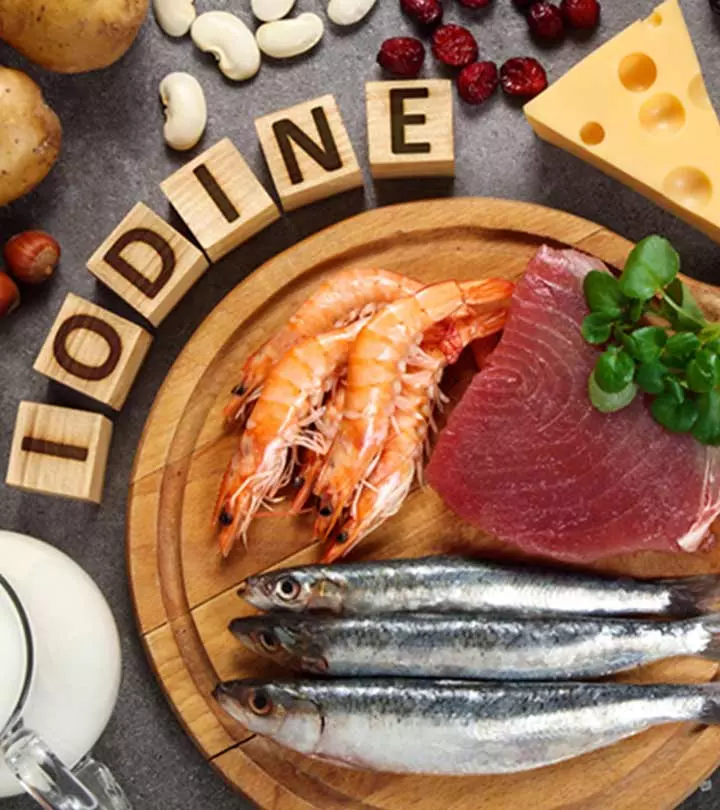
Image: Shutterstock
Iodine, though present in trace quantities in our body, is crucial for neurological and reproductive functions and thyroid health. The benefits of iodine are far-reaching. It helps produce thyroid hormones that, in turn, play a vital role in optimal brain function, pregnancy, fetal development, and metabolism. So, it is highly essential to obtain this mineral in recommended quantity through a healthy diet or supplements.

Most iodine present in our body is headed to thyroglobulin and is found in the thyroid gland (1). It determines the thyroid function, and a deficiency could result in serious disorders. For instance, iodine deficiency during pregnancy and growth can lead to impaired cognitive function. A severe deficiency can even result in the onset of goiter and hypothyroidism (2). Iodine also has antiseptic and disinfectant properties that help treat infections and minor burns. This article looks at these benefits deeply and understands the symptoms of iodine deficiency and its daily recommended intake. Keep reading.
In This Article
What Are The Benefits And Uses Of Iodine?
1. Promotes Thyroid Health
Thyroid function is absolutely crucial for metabolism. The hormones T3 and T4 (triiodothyronine and thyroxine) contain iodine as an essential component and are responsible for regulating thyroid function (3). Iodine is a requisite substrate for the synthesis of the thyroid hormones and is critical in the autoregulation of the thyroid gland and its function. This helps in combating minor fluctuations in the endocrine system (4). That is why, iodine-rich foods are always an important part of a thyroid diet.
 Trivia
TriviaApart from that, iodide – a form of iodine – is known to control thyroid function. The thyroid stimulating hormone (TSH) is modulated by the thyroid, with iodide playing a crucial role (5),(6).
Excess or deficiency of iodine can lead to different thyroid disorders which are discussed in detail in the following sections.
2. May Reduce The Risk For Some Goiters
The availability of iodine plays an important role in the production of thyroid hormones by the thyroid gland (7). In adults, mild to moderate iodine deficiency increases the incidence of hyperthyroidism due to toxic goiter (7), (8).
A study suggests that the prevalence of goiter is directly proportional to the level of your iodine deficiency. A mild deficiency increases the incidence by 5-20%, while a moderate deficiency increases it by 20-30%. Further, the incidence of goiter becomes greater than 30% with a severe iodine deficiency. The study also suggests that this may increase thyroid nodules, which have an incidence of 60-70% in adults.
Studies have shown that the excess iodine, in combination with the dysfunctional thyroid gland, may manifest as a multinodular goiter, which sometimes leads to thyrotoxicosis (4). Thus, it is important to curate the dosage programs of mass iodization carefully.
3. May Help In Managing Overactive Thyroid Gland And IIH
Radioactive iodine (RAI) therapy for hyperthyroidism was first used in 1941 by physicians at Massachusetts General Hospital in Boston (9). Studies have shown that radioactive iodine can be used in the management of hyperthyroidism in children (10). This therapy has shown high cure rates at appropriate doses. However, there is a potential risk of genetic damage or thyroid cancer, which is why these radioactive iodine-based therapies are used conservatively until further research is available (10).
Recent studies have shown that using radioactive iodine for managing hyperthyroidism may be contraindicated (11). Iodine-induced hyperthyroidism (IIH) occurs as a consequence of correction iodine deficiency, usually in the elderly population with multinodular goiter with underlying cardiovascular risk factors. Monitoring the process of iodization can help in managing IIH (12).
IIH may also occur due to an increase in iodine intake in individuals whose hyperthyroidism (Graves’ disease) is not expressed because of iodine deficiency (12).
4. May Help In Treating Thyroid Cancer
Thyroidectomy is one of the standard practices for treating well-differentiated thyroid cancer (13). However, radioactive iodine is administered to identify any leftover tissue. Studies conducted on the role of radioactive iodine are controversial due to many factors such as the lack of understanding of the mechanisms involved and a lack of consensus regarding the dosage and administrative practices by hospitals (13), (14), (15).
5. May Help In Neurodevelopment During Pregnancy
Iodine is also critical for the development of the central nervous system in the fetus and children (3). The thyroid hormones from the mother are essential for the development of the fetus as they regulate neurodevelopment, especially in the later stage of the first trimester (16). Thus, it is recommended for pregnant women to increase iodine consumption by 50% either through diet or supplements. We have discussed the recommended dosage levels in detail in the section below.
As the pregnancy progresses, the fetus starts to produce these hormones (16). Hypothyroxinemia, fetal hypothyroidism, and cretinism are some of the serious consequences of thyroid deficiency and neural impairment during pregnancy (16). Autoimmune thyroid disease (AITD), Transient Gestational Hyperthyroidism Syndrome, and different types of goiter are also common during pregnancy, although their prevalence is lower. Iodine deficiency remains the leading cause of preventable mental retardation worldwide (6), (17).
Studies have shown that children born to women with hypothyroidism exhibit lower scores in a neuropsychological test measuring parameters such as language, intelligence (intelligent quotient), attention, and visual-motor performance (18). Although further research is required to rule out other factors that might play a role in neonatal complications, it is recommended that all pregnant women be screened for thyroid diseases so that preventive measures can be taken (18), (19).
Iodized salt is not the preferred method for delivering iodine during pregnancy as excess salt intake may lead to further complications and water retention. Multivitamins are a better option to meet the recommended dietary requirements for iodine during pregnancy (20).
6. May Improve Cognitive Function
As discussed above, iodine is critical for the development of the central nervous system in the fetus and children (3). Iodine supplementation is recommended to counteract hypothyroidism due to iodine deficiency during pregnancy. This can help in improving the cognitive function of children and prevent learning disabilities to some extent (1), (3).
Iodine is also essential for brain development, formation, and differentiation of neurons, myelination, and even the formation of synapses (1).
Iodine supplementation has been shown to successfully improve physical and mental development in children. However, further research is needed to understand the role of iodine in improving cognitive function (21).
A blogger, Carolyn, detailed her iodine deficiency and how she combated the situation. She faced diminished cognition skills and blamed her age for the same. She took to dabbing iodine tincture on her skin and wrote, “On the fourth day the cloud in my head was gone. I was me again. I could remember things for more than three seconds. I could function(i).”She also noted that increased iodine intake improved her cold tolerance and reduced hair loss problems.
7. May Help In Improving Birth Weight
Research has found an association between thyroid function, iodine status, and prenatal growth (22). High maternal thyroid hormone levels during the first half of pregnancy were related to lower birth weight (23).
Iodine supplementation has the potential to positively impact the birth weight of newborns (24).
Studies have shown that oral iodine administration improves the survival rates of infants in populations at risk for iodine deficiency (25).
8. May Help Treat Fibrocystic Breast Disease
The safety and efficiency of iodine therapy in treating and managing fibrocystic breast disease in animals has been well documented (26), (27), (28).
However, patients with fibrocystic breast disease responded differently to iodine replacement therapy (29). Studies are limited to validate this claim, but there is preliminary data suggesting that iodine may help in managing fibrocystic breast disease and breast cancer (26).
9. May Help In Disinfecting Water
Iodine is known to be a cheap and effective water disinfectant due to its germicidal properties (30). However, it might lead to the ingestion of iodine in excess of the daily recommended amount. This may pose a risk as excess iodine can lead to several health complications (30). Iodine is used in swimming pools regularly to clean and disinfect water.
10. May Provide Protection From Nuclear Fallout
WHO recommends potassium iodide (KI) administration as a prophylactic measure following nuclear accidents (31). It is one of the safest and most effective methods to counteract accidental radioactive exposure during a nuclear reaction (32). Potassium iodide saturates the thyroid transport and negatively regulates the deposition of radioactive iodine into the thyroid gland. This helps in preventing thyroid dysfunction and thyroid cancer (32).
 Did you know?
Did you know?11. May Help In Treating Infections
Povidone iodine (PVP-I) is an antiseptic and antimicrobial agent. It can be used to treat cuts, abrasions, and minor burns (33). In fact, it is recommended in the list of essential medicines by WHO (34). It is commonly used to treat wounds (pre- and post-surgery) and skin infections as it has broad spectrum antimicrobial activity.
Now that you know all about the health benefits of iodine, let’s check out all the ways you can ingest it safely.
Natural sources of iodine are listed below (21):
- Iodine is found naturally in abundance in seaweed (kelp, nori, kombu, and wakame), shrimp, and fish such as cod and tuna.
- Dairy products are another rich source of iodine. Include milk, cheese, and yogurt in your diet to reap the health benefits of iodine.
- Bread and grain-based cereals also contain iodine.
- Vegetables and fruits are major sources of iodine. The iodine found in the soil where they are cultivated may play an important role in their nutritional value.
You can also take iodine in the form of dietary supplements and iodized table salt (21).
You can learn more about the sources of iodine and how to include them in your diet.
Now, let’s talk about how much iodine you need to consume in the next section.
Key Takeaways
- Iodine is crucial for thyroid health, neurological functions, and reproductive health.
- Natural sources of iodine include seaweed, seafood, dairy products, bread, grains, vegetables, and fruits.
- Pregnant and breastfeeding women should prioritize iodine-rich foods and consider supplementation if necessary, as their iodine needs increase significantly during this period.
How Much Iodine Do You Need?
The amount of iodine you need to eat each day depends on your age. The average daily recommended amounts are listed below in micrograms (mcg) (21).
- Life Stage And The Recommended Intake
- Birth to 6 months: 110 mcg
- Infants 7-12 months: 130 mcg
- Children 1-8 years: 90 mcg
- Children 9-13 years:120 mcg
- Teens 14-18 years: 150 mcg
- Adults: 150 mcg
- Pregnant teens and women: 220 mcg
- Breastfeeding teens and women: 290 mcg
Women who are pregnant or breastfeeding need extra iodine as the babies get the iodine from their mothers, especially during the early stages of pregnancy. The American Thyroid Association and American Academy of Pediatrics recommend that women who are pregnant, planning to become pregnant, or breastfeeding take a daily supplement containing 150 mcg iodine as potassium iodide (21).
Generally, iodine is safe at recommended levels. However, care should be taken when it is taken alongside certain medications that are listed in the next section.
Is There A Risk Of Drug Interactions With Iodine?
- Iodine supplements are known to interact with several medications such as M1ethimazole/Tapazole (treats hyperthyroidism). Most anti-thyroid medications and the intake of high doses of iodine will be counterproductive. They could lead to a reduction in the production of thyroid hormones (21).
- Potassium iodide, when taken with ACE inhibitors (Benazepril/Lotensin, Lisinopril, Prinivil, or Zestril) that are often prescribed for high blood pressure, may lead to increased levels of potassium in the bloodstream (21).
- Drugs like Spironolactone/Aldactone and Amiloride/Midamor – which are potassium-sparing diuretics – can also increase the potassium levels in the body when they interact with potassium iodide (21).
Always consult your doctor or a medical professional before taking iodine supplements.
Iodine is a great supplement for thyroid function, but it also poses the risk of certain side effects. Check them out in the next section.
What Are The Side Effects Of Iodine?
Too little or too much of iodine can upset the delicate balance of thyroid function. Apart from thyroid disorders, high iodine intake can cause vomiting, burning sensation in the mouth, throat, stomach, and fever. You may also experience symptoms such as weak pulse, diarrhea, and nausea (21). Thyroid inflammation, cancer, and goiter are also manifestations of iodine status and thyroid regulation.
What Are Signs And Symptoms Of Iodine Deficiency?
On the other side of the scale is iodine deficiency. Environmental iodine deficiency is one of the leading causes of thyroid disorders such as goiter, cretinism, fetal and infant mortality, and rise in cognitive and neuromotor disabilities (4), (35). This has been tackled by implementing mass iodization programs with successful results (1), (4).
Since iodine status and thyroid hormone production are correlated, the symptoms for iodine deficiency also overlap with those of hypothyroidism:
- Swelling In The Neck: This is a common symptom of goiter, which is caused by iodine deficiency. Low iodine levels trigger the thyroid cells to multiply at exponential rates, which causes the swelling in the neck.
- Unexpected Weight Gain: Iodine levels and thyroid glands are involved in the regulation of metabolism. This may lead to weight gain. However, further studies are needed to understand the exact mechanism behind this (36), (37).
- Fatigue And Weakness: As thyroid function is correlated with energy expenditure, iodine deficiency or hypothyroidism can cause feelings of tiredness, lethargy, and fatigue (38).
- Hair loss (38)
- Dry, flaky skin (38)
- Feeling colder than usual (38)
- Changes in heart rate (38)
- Trouble learning and remembering (38)
- Problems during pregnancy (38)
- Heavy or irregular periods (38)
So, let’s answer the most important question.
Who Should Take Iodine?
Iodine is essential for the normal functioning of the body. Iodine supplements should be taken by:
- Women who are pregnant and breastfeeding (21).
- People with iodine deficiency or hypothyroidism (21).
- People living in iodine-deficient areas (21).
- Iodine-deficient people who consume excessive amounts of goitrogens, such as soy and cruciferous vegetables (21).
Iodine deficiency early in life impairs cognition and growth, but iodine status is also a key determinant of thyroid disorders in adults. Severe iodine deficiency causes goiter and hypothyroidism. Both iodine deficiency and iodine excess are associated with an increased risk of thyroid disorders. Further research is warranted to verify the optimal ranges of iodine intake and to clarify the effects of iodine intake on thyroid disorders.
From preventing hypo or hyperthyroidism and thyroid cancer to reducing the risk of goiter and cognitive decline, the benefits of iodine are wide-ranging. It is highly essential for pregnant women to ensure the cognitive and neurological development of the fetus, so they must eat foods rich in iodine like seaweed. It also aids in treating infections, thanks to its antiseptic and antimicrobial properties. Foods like seaweed, tuna, cod, dairy products, bread, cereals, veggies, and fruits are rich in this trace element. Include these in your diet to keep iodine deficiency in check. However, excessive iodine levels may also impact thyroid health, so practice caution.
Frequently Asked Questions
Are iodine supplements safe?
Iodine supplements should be taken under medical supervision. Studies have shown that excess iodine can be harmful (39).
How long does it take to correct iodine deficiency?
Although there is limited data, people have shown improvement in 3 months after taking iodine.
References
Articles on StyleCraze are backed by verified information from peer-reviewed and academic research papers, reputed organizations, research institutions, and medical associations to ensure accuracy and relevance. Read our editorial policy to learn more.
- Choudhry, Hani, and Md Nasrullah. “Iodine consumption and cognitive performance: Confirmation of adequate consumption.” Food science & nutrition vol. 6,6 1341-1351. 1 Jun. 2018, doi:10.1002/fsn3.694
https://www.ncbi.nlm.nih.gov/pmc/articles/PMC6145226/?report=classic - Zimmermann, Michael B., and Kristien Boelaert. “Iodine deficiency and thyroid disorders.” The Lancet Diabetes & Endocrinology 3.4 (2015): 286-295.
https://www.sciencedirect.com/science/article/abs/pii/S2213858714702256 - De Escobar, Gabriella Morreale, María Jesús Obregón, and Francisco Escobar Del Rey. “Iodine deficiency and brain development in the first half of pregnancy.” Public health nutrition 10.12A (2007): 1554-1570.
https://pubmed.ncbi.nlm.nih.gov/18053280/ - Woeber, Kenneth A. “Iodine and thyroid disease.” The Medical Clinics of North America 75.1 (1991): 169-178.
https://europepmc.org/article/med/1987441 - Mariotti, Stefano, and Paolo Beck-Peccoz. “Physiology of the hypothalamic-pituitary-thyroid axis.” Endotext [Internet]. MDText. com, Inc., 2016.
https://www.ncbi.nlm.nih.gov/books/NBK278958/ - Chung, Hye Rim. “Iodine and thyroid function.” Annals of Pediatric Endocrinology & Metabolism 19.1 (2014):
https://www.ncbi.nlm.nih.gov/pmc/articles/PMC4049553/ - Laurberg, Peter, et al. “Iodine intake as a determinant of thyroid disorders in populations.” Best Practice & Research Clinical Endocrinology & Metabolism 24.1 (2010): 13-27.
https://pubmed.ncbi.nlm.nih.gov/20172467/ - Zimmermann, Michael B. “Research on iodine deficiency and goiter in the 19th and early 20th centuries.” The Journal of nutrition 138.11 (2008): 2060-2063.
https://www.researchgate.net/publication/23399680_Research_on_Iodine_Deficiency_and_Goiter_in_the_19th_and_Early_20th_Centuries1 - Kaplan, Michael M., Donald A. Meier, and Howard J. Dworkin. “Treatment of hyperthyroidism with radioactive iodine.” Endocrinology and metabolism clinics of North America 27.1 (1998): 205-223.
https://www.sciencedirect.com/science/article/abs/pii/S0889852905703078 - Rivkees, Scott A. “The management of hyperthyroidism in children with emphasis on the use of radioactive iodine.” Pediatric endocrinology reviews: PER 1 (2003): 212.
https://pubmed.ncbi.nlm.nih.gov/16444161/ - Toft, Daniel J. “Radioactive Iodine Therapy for Hyperthyroidism Is Associated with Increased Solid Cancer Mortality.” Clinical Thyroidology 31.8 (2019): 326-329.
https://www.liebertpub.com/doi/full/10.1089/ct.2019%3B31.326-329 - Stanbury, John Burton, et al. “Iodine-induced hyperthyroidism: occurrence and epidemiology.” Thyroid 8.1 (1998): 83-100.
https://www.liebertpub.com/doi/abs/10.1089/thy.1998.8.83 - Haymart, Megan R., et al. “Use of radioactive iodine for thyroid cancer.” Jama 306.7 (2011): 721-728.
https://www.ncbi.nlm.nih.gov/pmc/articles/PMC3352591/ - Bouvet, Clément, et al. “Re-treatment with adjuvant radioactive iodine does not improve the recurrence-free survival in patients with differentiated thyroid cancer.” Frontiers in Endocrinology 10 (2019): 671.
https://www.frontiersin.org/journals/endocrinology/articles/10.3389/fendo.2019.00671/full - Pineda, J. D., et al. “Iodine-131 therapy for thyroid cancer patients with elevated thyroglobulin and negative diagnostic scan.” The Journal of Clinical Endocrinology & Metabolism 80.5 (1995): 1488-1492.
https://academic.oup.com/jcem/article-abstract/80/5/1488/2650871 - Skeaff, Sheila. (2011). Iodine Deficiency in Pregnancy: The Effect on Neurodevelopment in the Child. Nutrients. 3. 265-73. 10.3390/nu3020265.
https://www.researchgate.net/publication/221755969_Iodine_Deficiency_in_Pregnancy_The_Effect_on_Neurodevelopment_in_the_Child - Mościcka, A, and J Gadzinowski. “Wpływ niedoboru jodu w ciazy na rozwój płodu i noworodka” [The influence of iodine deficiency during pregnancy of fetal and neonatal development]. Ginekologia polska vol. 72,11 (2001): 908-
https://pubmed.ncbi.nlm.nih.gov/11848033/ - Krassas, Gerasimos, et al. “Thyroid Diseases during Pregnancy: A Number of Important Issues.” Hormones, vol. 14, no. 1, Jan. 2015, pp. 59–69,
https://link.springer.com/article/10.1007/BF03401381 - Alexander, Erik K. et al. “2017 Guidelines of the American Thyroid Association for the Diagnosis and Management of Thyroid Disease During Pregnancy and the Postpartum.” Thyroid 27.3 (2017): 315–389.
https://www.liebertpub.com/doi/full/10.1089/thy.2016.0457 - Glinoer, Daniel. “The Importance of Iodine Nutrition during Pregnancy.” Public Health Nutrition, vol. 10, no. 12A, Dec. 2007, pp. 1542–1546
https://www.cambridge.org/core/journals/public-health-nutrition/article/importance-of-iodine-nutrition-during-pregnancy/3059F2795E74FABFFD50E7130F480FAB - “Office of Dietary Supplements – Iodine.” Nih.Gov, 2017, ods.od.nih.gov/factsheets/iodine-consumer/.
https://ods.od.nih.gov/factsheets/iodine-consumer/ - Alvarez-Pedrerol, M, et al. “Iodine Levels and Thyroid Hormones in Healthy Pregnant Women and Birth Weight of Their Offspring.” European Journal of Endocrinology, vol. 160, no. 3, Mar. 2009, pp. 423–429
https://pubmed.ncbi.nlm.nih.gov/19114540/ - León, Gemma, et al. “Maternal Thyroid Dysfunction during Gestation, Preterm Delivery, and Birthweight. The Infancia y Medio Ambiente Cohort, Spain.” Paediatric and Perinatal Epidemiology, vol. 29, no. 2, 7 Jan. 2015, pp. 113–122
https://onlinelibrary.wiley.com/doi/abs/10.1111/ppe.12172 - Anees, Mariam, et al. “Effect of Maternal Iodine Supplementation on Thyroid Function and Birth Outcome in Goiter Endemic Areas.” Current Medical Research and Opinion, vol. 31, no. 4, 13 Feb. 2015, pp. 667–674
https://pubmed.ncbi.nlm.nih.gov/25629792/ - Cobra, Claudine, et al. “Infant Survival Is Improved by Oral Iodine Supplementation.” The Journal of Nutrition, vol. 127, no. 4, 1 Apr. 1997, pp. 574–578
https://academic.oup.com/jn/article/127/4/574/4728729 - Patrick L. Iodine: Deficiency and therapeutic considerations. Altern MedRev. 2008;13:116–127
https://www.semanticscholar.org/paper/Iodine%3A-deficiency-and-therapeutic-considerations.-Patrick/221b91c7d8eb9c5405796f023795d28e6c3b3e00?p2df - Smyth, Peter PA. “Role of iodine in antioxidant defence in thyroid and breast disease.” Biofactors 19.3‐4 (2003): 121-130.
https://iubmb.onlinelibrary.wiley.com/doi/abs/10.1002/biof.5520190304 - Venturi, Sebastiano. “Is there a role for iodine in breast diseases?.” The Breast 10.5 (2001): 379-382.
https://www.sciencedirect.com/science/article/abs/pii/S0960977600902674 - Ghent, W. R., et al. “Iodine replacement in fibrocystic disease of the breast.” Canadian journal of surgery. Journal canadien de chirurgie 36.5 (1993): 453-460.
https://pubmed.ncbi.nlm.nih.gov/8221402/ - Backer, Howard, and Joe Hollowell. “Use of iodine for water disinfection: iodine toxicity and maximum recommended dose.” Environmental Health Perspectives 108.8 (2000): 679-684.
https://ehp.niehs.nih.gov/doi/abs/10.1289/ehp.00108679 - “The effects of iodine blocking following nuclear accidents on thyroid cancer, hypothyroidism, and benign thyroid nodules: design of a systematic review”
https://www.ncbi.nlm.nih.gov/pmc/articles/PMC4588908/ - Dreger, Steffen, et al. “The effects of iodine blocking following nuclear accidents on thyroid cancer, hypothyroidism, and benign thyroid nodules: design of a systematic review.” Systematic reviews 4.1 (2015): 126.
https://www.ncbi.nlm.nih.gov/pmc/articles/PMC4588908/ - Eggers, Maren. “Infectious disease management and control with povidone iodine.” Infectious diseases and therapy (2019): 1-13.
https://www.ncbi.nlm.nih.gov/pmc/articles/PMC6856232/ - World Health Organization. “WHO model list of essential medicines. 2017.” Available from: left angle bracket
https://www.who.int/groups/expert-committee-on-selection-and-use-of-essential-medicines/essential-medicines-lists - Hwalla, Nahla, et al. “The prevalence of micronutrient deficiencies and inadequacies in the Middle East and approaches to interventions.” Nutrients 9.3 (2017): 229.
https://www.ncbi.nlm.nih.gov/pmc/articles/PMC5372892/ - Kim, Brian. “Thyroid hormone as a determinant of energy expenditure and the basal metabolic rate.” Thyroid 18.2 (2008): 141-144.
https://pubmed.ncbi.nlm.nih.gov/18279014/ - Karkhaneh, Maryam, et al. “Association of thyroid hormones with resting energy expenditure and complement C3 in normal weight high body fat women.” Thyroid research 12.1 (2019): 9.
https://pubmed.ncbi.nlm.nih.gov/31666810/ - National Institute of Diabetes and Digestive and Kidney Diseases. “Hypothyroidism (Underactive Thyroid) | NIDDK.” National Institute of Diabetes and Digestive and Kidney Diseases
https://www.niddk.nih.gov/health-information/endocrine-diseases/hypothyroidism - Rebagliato, Marisa, et al. “Iodine intake and maternal thyroid function during pregnancy.” Epidemiology (2010): 62-69.
https://pubmed.ncbi.nlm.nih.gov/19940773/
Read full bio of Merlin Annie Raj
Read full bio of Ravi Teja Tadimalla
Read full bio of Arshiya Syeda
Read full bio of Aparna Mallampalli







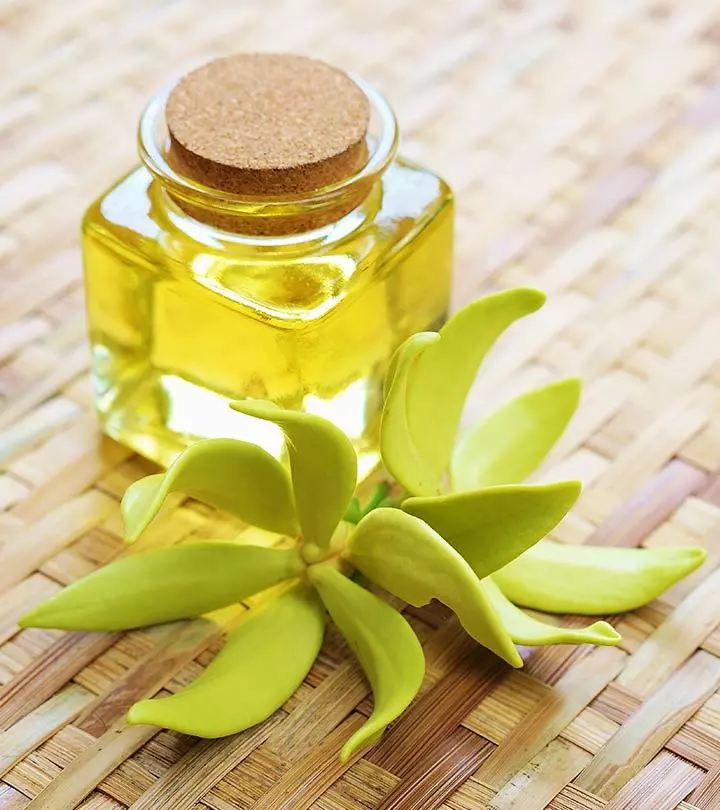

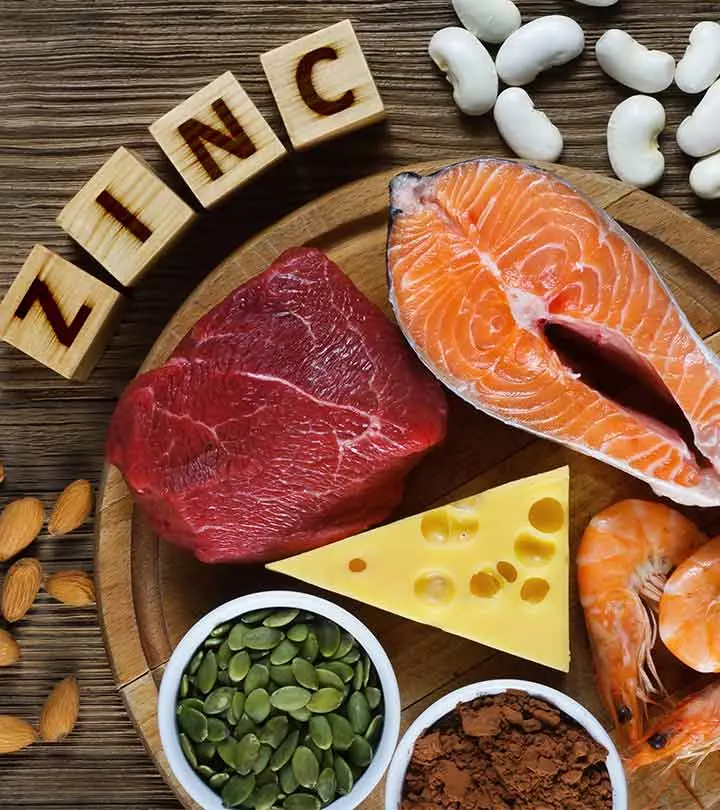


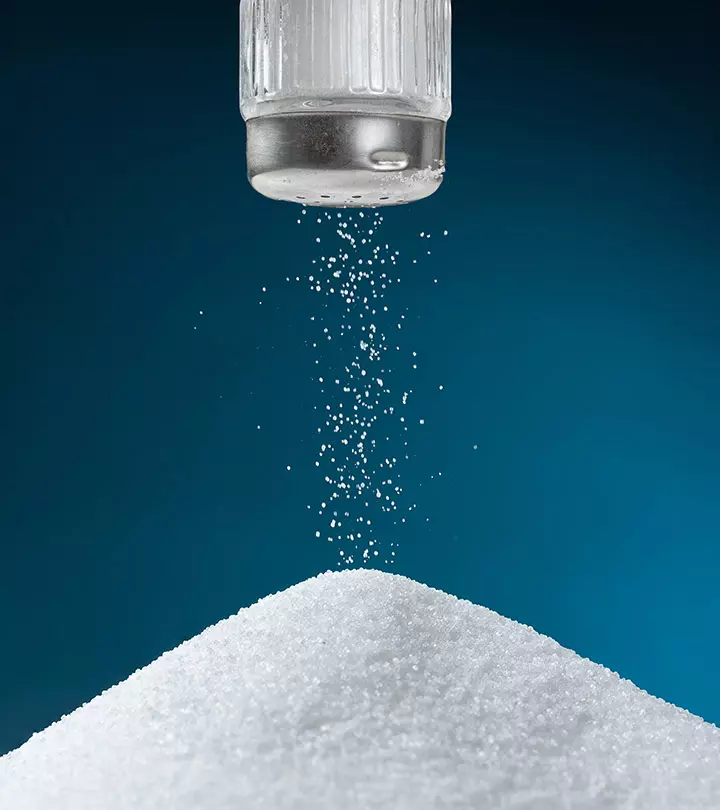

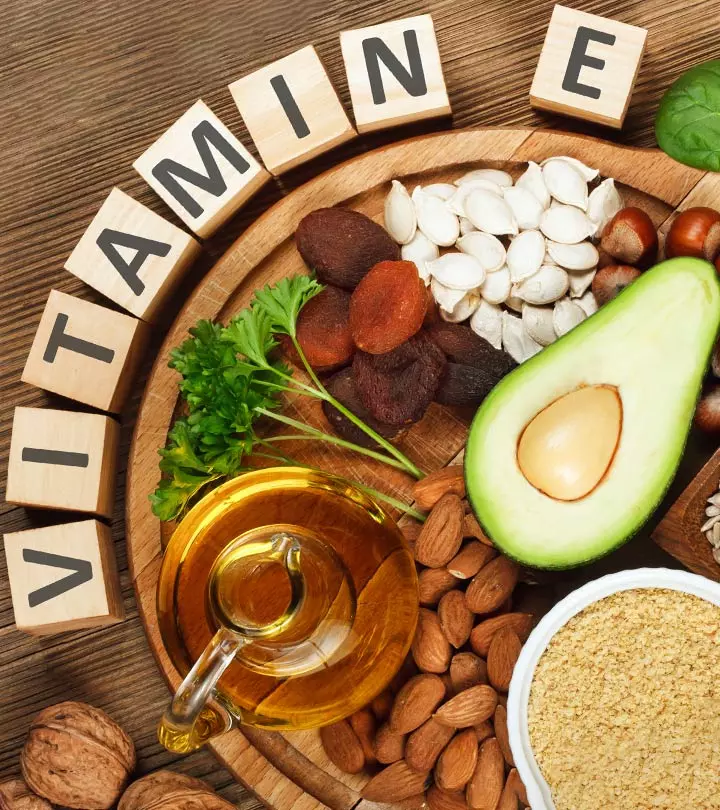

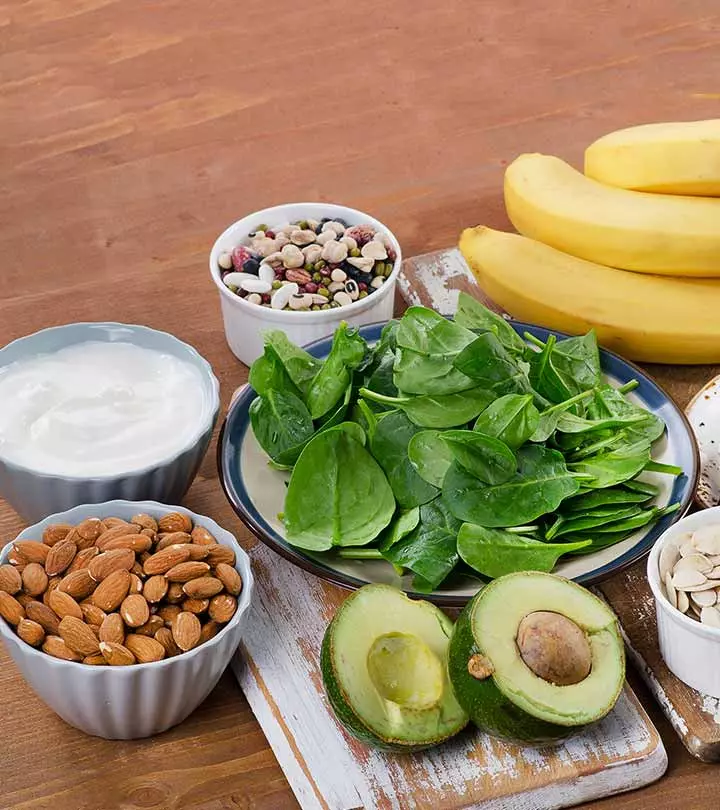
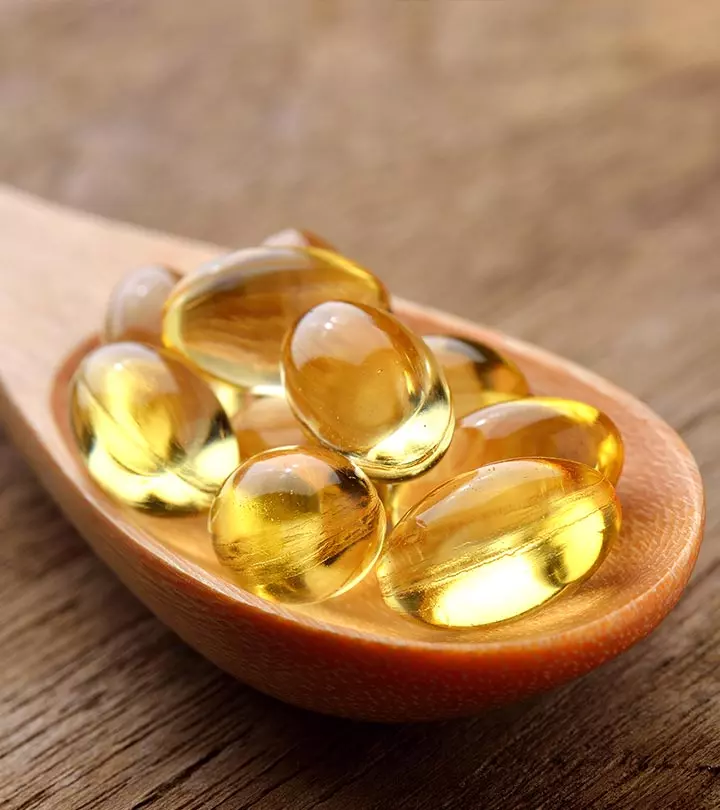
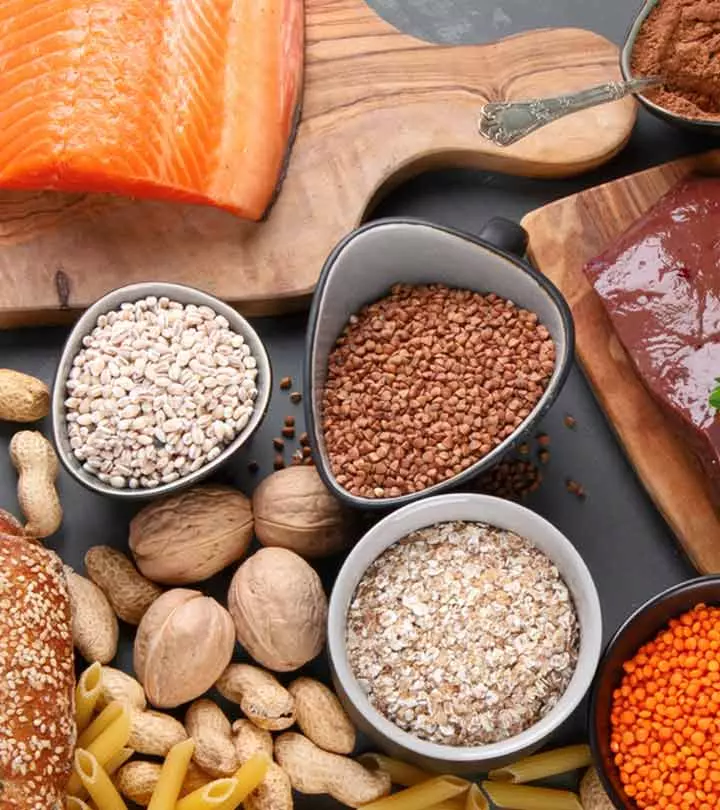
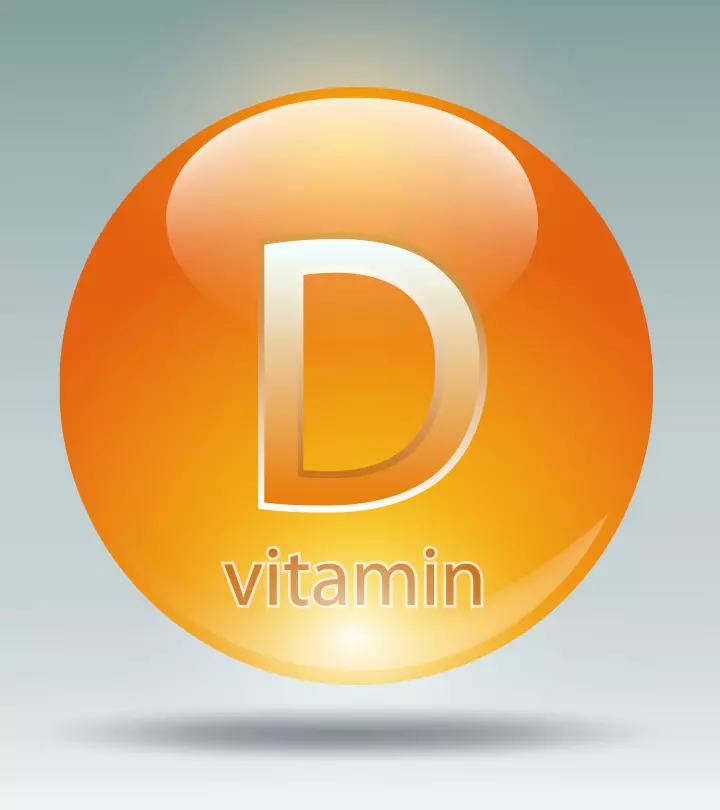

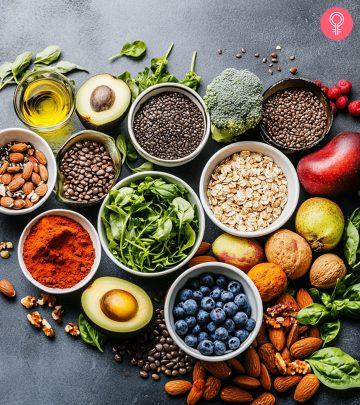
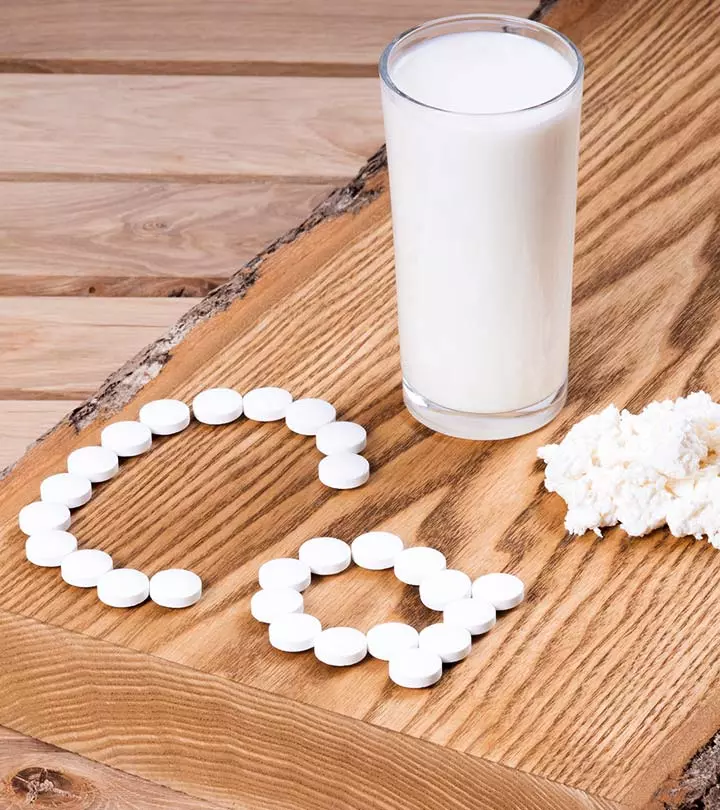

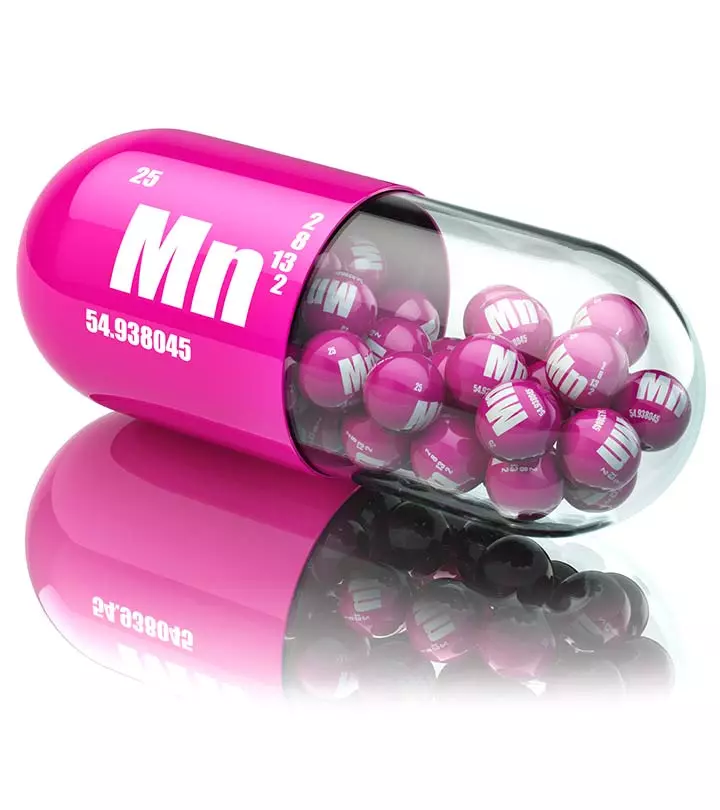

Community Experiences
Join the conversation and become a part of our empowering community! Share your stories, experiences, and insights to connect with other beauty, lifestyle, and health enthusiasts.